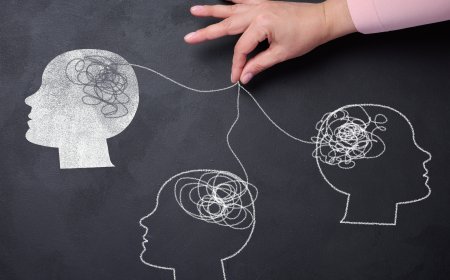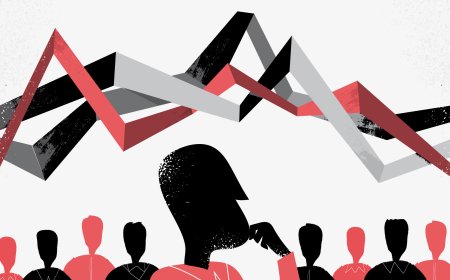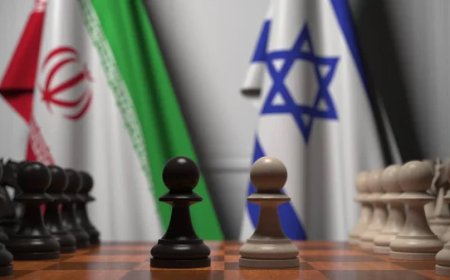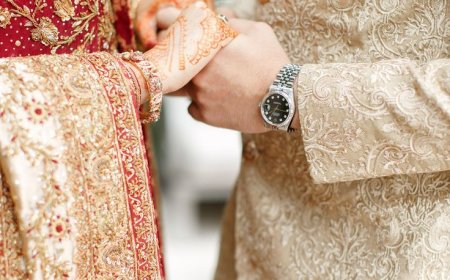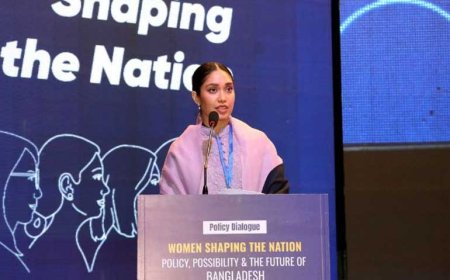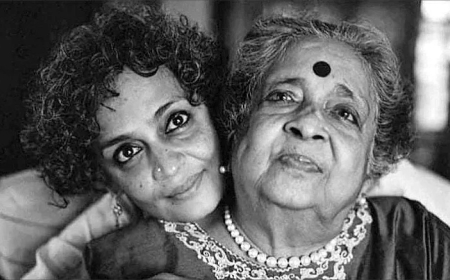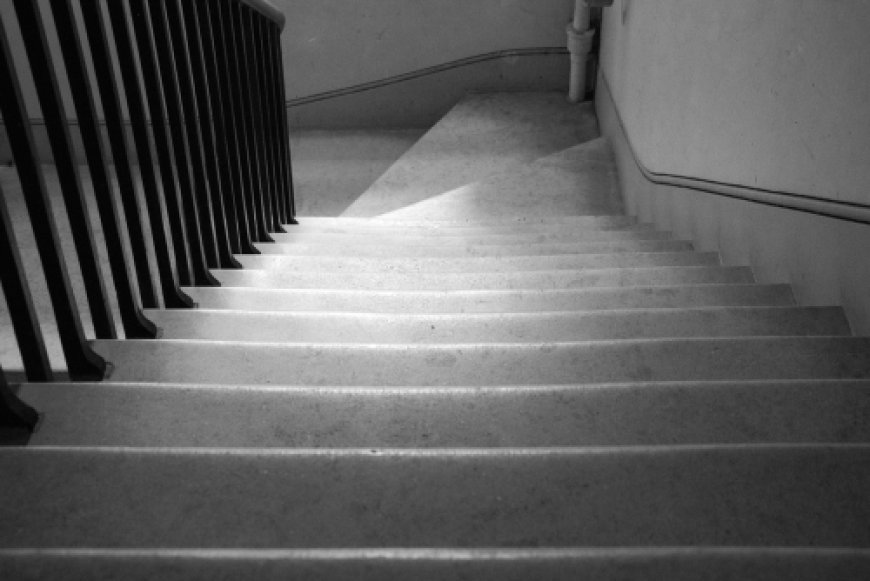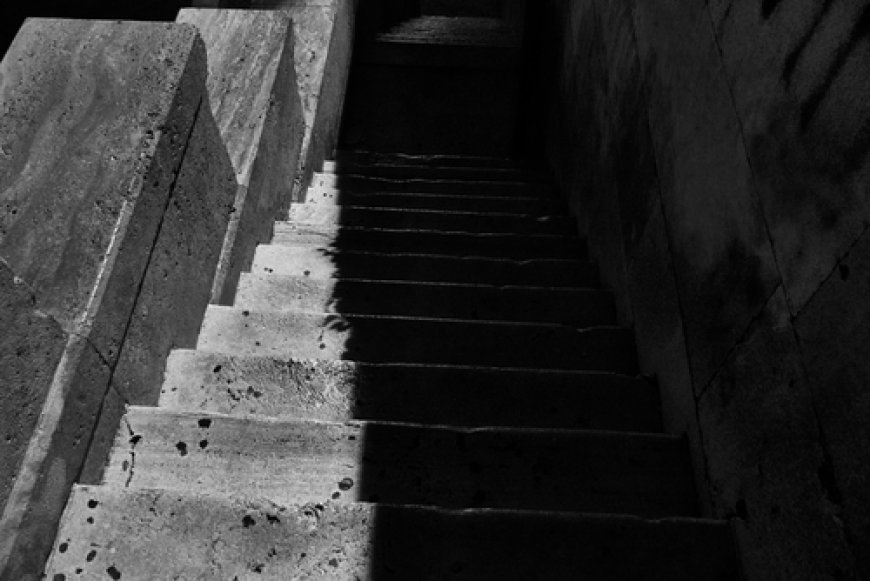The Stairs to Justice
When the trial process itself becomes a form of punishment it undermines the very foundation of a just legal system
Voltaire, the intellectual totem of the French Revolution, famously said: “History is filled with the sound of silken slippers going downstairs and wooden shoes coming up.”
In Bangladesh, the rise and fall of those in power is marked by tired-looking individuals going up the same stairs: in Dhaka’s Chief Municipal Magistrate (CMM) court and other trial courts.
The image is disturbing: an 81-year-old former Chief Justice of Bangladesh, Khairul Huq, struggling to climb courthouse stairs to face trial, having to be almost carried up by two policemen on both sides. Leaving behind our individual likes or dislikes regarding Khairul Huq, this scene represents a systemic failure that has persisted across political transitions, revealing how Bangladesh's judicial infrastructure continues to strip elderly defendants of their basic human dignity.
Khairul Huq delivered the verdict which abolished the Caretaker Government system from Bangladesh. We may very well loathe him for that -- but delivering such a verdict is not a crime, and we know that because the government has not filed a case against him alleging that delivering that verdict was a crime. Instead, he has been arrested under one of the murder cases.
What makes this particularly galling is that this is not an isolated incident, nor is it a problem unique to the current administration.
When Dr. Muhammad Yunus, now the Chief Advisor of Bangladesh, faced government persecution under former Prime Minister Sheikh Hasina, he too was subjected to the same humiliating ordeal of climbing courthouse stairs despite his advanced age.
In fact, it was then alleged that the Hasina government would ensure that the lifts were inoperational whenever Dr. Yunus had a court date, thus forcing him to slowly go up and down the stairs. The cruel irony is unmistakable: the very person who now leads the interim government once experienced the same institutional disregard for elderly dignity that continues to plague the system today.
This continuity of cruelty across different political dispensations exposes a deeper problem. The systematic injustice toward aged defendants has remained constant despite the change in government following Sheikh Hasina's ouster in August 2024.
Whether under the Awami League or the interim administration, elderly individuals facing legal proceedings continue to be subjected to physical hardship that serves no legal purpose but causes immense suffering.
The pattern extends beyond these two prominent cases. Former Prime Minister Khaleda Zia's treatment during her legal proceedings under the previous government provides another disturbing example of how the trial process has been weaponized to harass and humiliate elderly political figures.
Throughout her various court appearances, the two-time former Prime Minister, despite her age and health conditions, was often denied basic accommodations that would have preserved her dignity while ensuring justice could proceed.
These cases collectively illustrate how Bangladesh's courthouses have become theaters of unnecessary cruelty rather than halls of justice. The absence of basic infrastructure like elevators, proper seating arrangements, and accessible facilities transforms what should be solemn legal proceedings into physically punishing ordeals for elderly defendants. This is not merely an oversight -- it represents a fundamental misunderstanding of what justice means in a civilized society.
A republic committed to upholding the rule of law possesses the authority to sentence convicted individuals to imprisonment or even death when prescribed by law. These are the ultimate expressions of state power in the service of justice.
However, no legitimate legal system has the right to strip defendants of their basic human dignity during the judicial process itself. The power to punish does not extend to the power to humiliate, starve, deprive individuals of necessary medical care, or subject them to intentionally degrading treatment.
The distinction is crucial. Justice requires that legal proceedings be conducted with respect for human dignity, regardless of the charges or the defendant's political history. When an 81-year-old man is forced to climb stairs that cause him physical distress, when elderly defendants are denied proper seating or medical accommodations, when the trial process itself becomes a form of punishment -- these actions undermine the very foundation of a just legal system.
The infrastructure failures in Bangladesh's courthouses are not merely inconveniences; they are violations of basic human rights. Modern courthouses around the world are designed with accessibility in mind, featuring elevators, ramps, proper lighting, climate control, and other amenities that ensure all participants in legal proceedings can maintain their dignity. These are not luxuries -- they are necessities for a functioning judicial system in the 21st century.
The current situation sends a disturbing message about Bangladesh's commitment to human rights and the rule of law. When prominent figures like a former chief justice or a Nobel laureate can be subjected to such treatment, it raises serious questions about how ordinary elderly citizens are treated within the system. If those with public profiles and international recognition cannot secure basic dignity, what hope do common citizens have?
Reform is not only possible but essential. Bangladesh needs a comprehensive overhaul of its judicial infrastructure to ensure that courthouses meet modern accessibility standards. This means installing elevators, creating proper waiting areas for elderly and disabled individuals, ensuring adequate medical facilities are available, and training court staff to handle defendants with special needs respectfully and professionally.
Beyond infrastructure, the culture within the judicial system must change. Courts should adopt clear protocols for accommodating elderly defendants, including provisions for medical breaks, appropriate seating, and alternative arrangements when physical limitations prevent standard courtroom participation. These accommodations should be seen not as special favors but as basic requirements for fair legal proceedings.
The treatment of elderly or otherwise disabled defendants serves as a litmus test for Bangladesh’s commitment to building a more just and humane society. Continued indifference to these problems will only reinforce perceptions that Bangladesh's judicial system operates more like a mechanism of punishment than a venue for fair legal proceedings.
Justice without dignity is not justice at all -- it is merely the exercise of power without moral foundation. Bangladesh must choose which path it wishes to follow.
What's Your Reaction?









